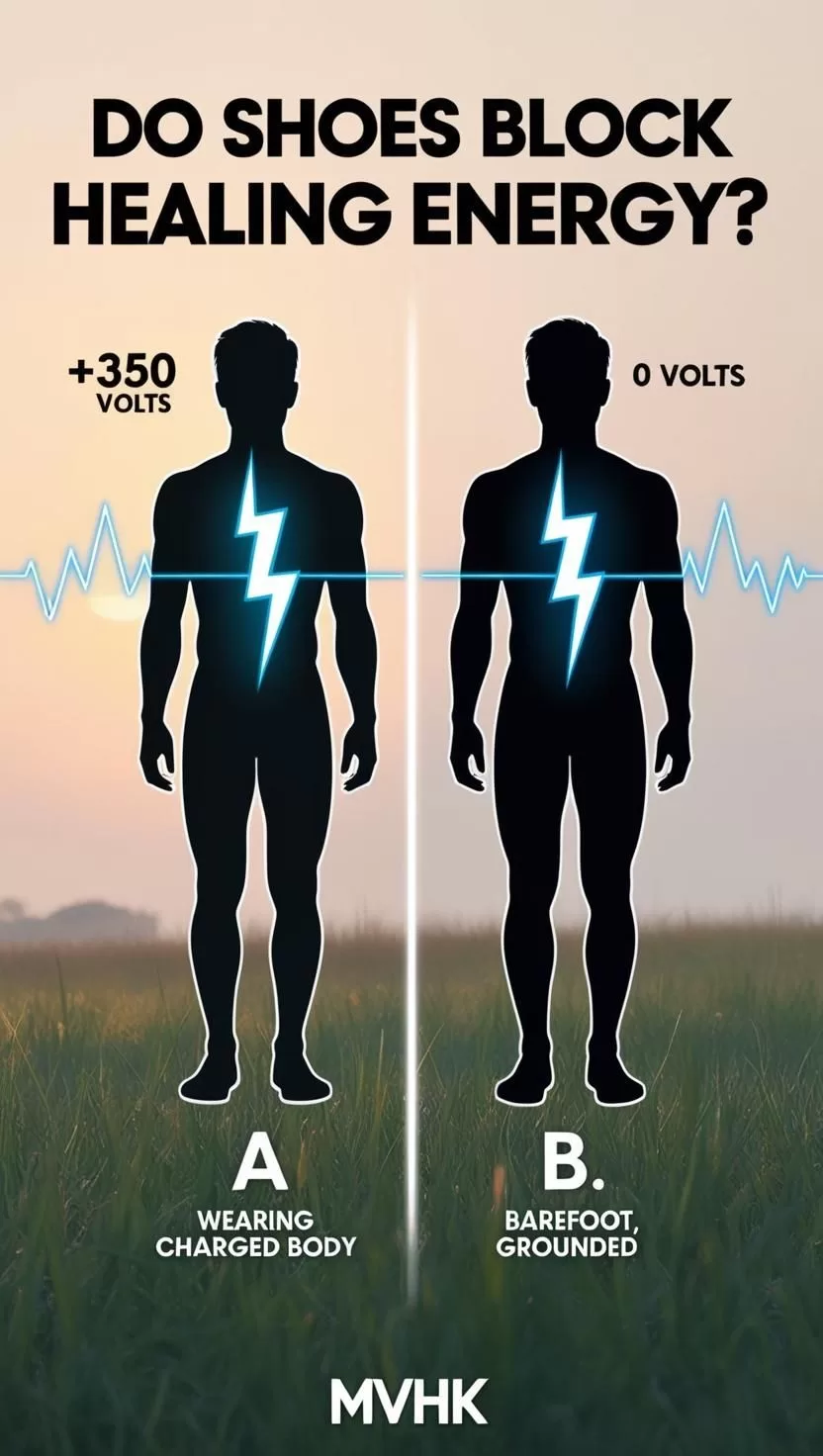Do Shoes Block Healing Energy? The Surprising Science Behind Grounding and Inflammation
Modern life has quietly disconnected us from one of Earth’s most powerful healing tools—its negative electrical charge. According to growing research and the work of Nobel physicist Richard Feynman, your shoes may be blocking the natural flow of energy between your body and the planet. This concept, known as Earthing, has implications for inflammation, chronic pain, and even cellular repair.
Let’s break down what the science says and how you can harness this free, natural therapy—starting today.
1️⃣ What Is Earthing and Why It Matters
The Earth’s Negative Charge and Your Health
The Earth’s surface holds a slight negative charge, constantly refreshed by solar radiation and thousands of lightning strikes every day. When your skin touches the Earth directly—say, walking barefoot—your body absorbs free electrons that neutralize damaging free radicals in your system.
This concept, backed by studies like Oschman et al., 2012 (NCBI), suggests grounding may help reduce systemic inflammation and oxidative stress.
Shoes as Insulators: A Hidden Problem
Most modern footwear is made of rubber or synthetic materials, which act as insulators. This means that when you wear shoes, you cut off the electrical connection to the Earth. As shown in Figure 7-2 (The umbrella effect of Earthing), a person wearing shoes maintains an electrical potential of +350 volts at head level, while a grounded person (barefoot) maintains 0 volts—dramatically reducing internal electrical stress.
2️⃣ Grounding and Inflammation: What the Research Shows
How Electrons Neutralize Inflammatory Molecules
When you’re grounded, the flow of Earth’s electrons into your body helps neutralize positively-charged free radicals, reducing chronic inflammation—one of the root causes of arthritis, autoimmune disorders, and heart disease.
Clinical Evidence on Pain, Sleep, and Cortisol
Clinical trials have demonstrated benefits like:
- Lowered nighttime cortisol levels
- Improved sleep quality
- Reduced muscle soreness after intense activity
- Less chronic pain and fatigue
One study published in the Journal of Inflammation Research showed significant improvement in pain and blood markers in patients who used grounding mats.
3️⃣ How to Start Grounding in a Modern World
Barefoot Time: Nature’s Simple Remedy
Spend at least 20 minutes a day barefoot on conductive surfaces like grass, soil, or sand. Parks, beaches, and backyards are perfect options—avoid pavement or treated wood.
Tools for Indoor Grounding
Can’t get outside every day? Use grounding mats, conductive bed sheets, or grounded yoga mats that connect to your home’s grounded electrical outlet. Be sure they’re tested and verified for safety.
Conclusion: How to Get Started Today
Reconnecting with Earth’s energy is a low-cost, high-reward practice that addresses modern ailments at their root. By understanding how your shoes—and even your floors—affect your voltage and inflammation levels, you can make grounded living a daily reality. Start with a barefoot morning walk or try a grounding mat during screen time. Your body (and mind) may thank you.
- Earthing: Health Implications of Reconnecting the Human Body to the Earth’s Surface Electrons
- Harvard Health: Inflammation and Chronic Disease
❓ FAQ Section
What is the science behind Earthing?
Earthing allows free electrons from the Earth to enter your body, neutralizing free radicals and reducing inflammation.
Do grounding mats work indoors?
Yes, when properly connected to a grounded outlet, grounding mats can mimic barefoot outdoor contact.
How long should I ground each day?
Research suggests 20–40 minutes daily can yield measurable health benefits.






